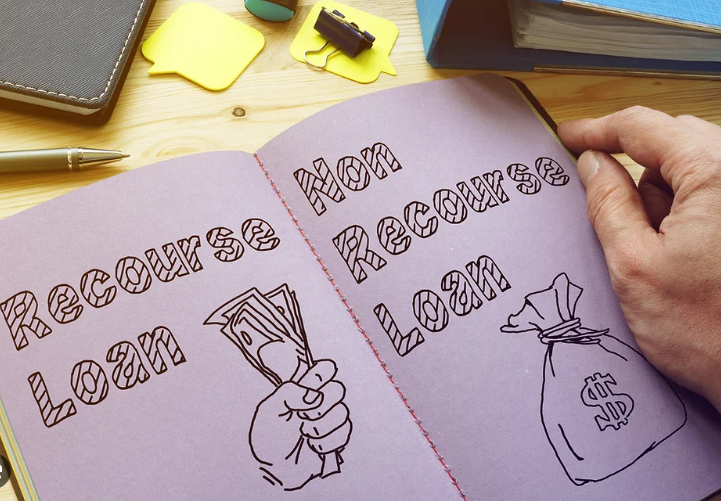
Understanding Recourse vs. Non-Recourse Loans: Key Differences Explained
When borrowing money, understanding the terms of the loan is crucial to avoid any financial surprises. One important distinction is between recourse loans and non-recourse loans. Both loan types allow lenders to claim collateral if borrowers fail to repay, but the way lenders can pursue additional repayment varies significantly between the two.
In this article, we will delve deeper into recourse and non-recourse loans, comparing how they work, their advantages, and why they matter to both borrowers and lenders.
What Are Recourse and Non-Recourse Loans?
Both recourse and non-recourse loans are secured by collateral. This means that if the borrower defaults, the lender has the right to seize assets to recover their loan amount. However, the key difference lies in what happens after the collateral is sold.
- Recourse Loans: If the collateral doesn’t fully cover the loan amount, the lender can pursue additional assets from the borrower, such as their savings or other personal property. This makes recourse loans more favorable to lenders because they provide more security in case of borrower default.
- Non-Recourse Loans: With a non-recourse loan, if the collateral is sold and the debt is not fully covered, the lender cannot go after the borrower’s other assets. The lender must absorb the remaining loss, which shifts more risk to them and offers the borrower a degree of protection.
Key Takeaways
- Both recourse and non-recourse loans allow lenders to seize collateral if the borrower defaults.
- After selling collateral, recourse loans allow lenders to pursue additional assets to recover any remaining balance, while non-recourse loans limit the lender to only the collateral.
- Recourse loans offer more security for lenders and often come with lower interest rates for borrowers with poor credit.
- Non-recourse loans are generally more favorable to borrowers but often come with higher interest rates and stricter qualification requirements.
Recourse Loans: More Power for Lenders
In a recourse loan, the borrower’s debt is secured with collateral. If the borrower defaults, the lender can sell the collateral and, if necessary, pursue other assets of the borrower to make up for any shortfall. This means the lender has extensive rights to recover the loan, including garnishing wages or seizing personal assets.
Recourse loans provide lenders with lower risk, making them an attractive option for borrowers who might not qualify for other types of financing, especially those with less-than-perfect credit histories. In exchange for this additional security, lenders are able to offer lower interest rates, making these loans more affordable for certain borrowers.
For example, auto loans are typically recourse loans. If a borrower defaults, the lender can repossess the vehicle and sell it. However, due to the depreciation of the car’s value over time, the lender may still be left with an outstanding balance, which they can recover from the borrower through additional claims.
Example of a Recourse Loan
Most auto loans are recourse loans. If the borrower defaults, the lender can repossess the car and sell it. If the sale price is insufficient to cover the loan balance, the lender can pursue other assets or income of the borrower to make up for the shortfall.
Non-Recourse Loans: Limited Risk for Borrowers
In contrast, non-recourse loans offer more protection for the borrower. If the borrower defaults and the collateral is sold, the lender cannot go after any additional assets, regardless of how much remains unpaid. This means that the lender assumes the full risk of loss if the collateral is insufficient.
Since non-recourse loans are riskier for lenders, they typically come with higher interest rates and stricter eligibility requirements. Only borrowers or businesses with excellent credit are likely to qualify for these loans, and even then, the types of loans available are often limited.
For example, mortgage loans are generally non-recourse. If the borrower defaults, the lender can foreclose on the home, sell it, and use the proceeds to pay off the loan. However, if the sale doesn’t cover the full loan balance, the lender cannot pursue additional assets from the borrower.
Example of a Non-Recourse Loan
Traditional mortgages are commonly non-recourse loans. If the borrower defaults, the lender may foreclose on the property and sell it. However, the lender cannot pursue the borrower’s other assets or income to recover any remaining debt.
Recourse vs. Non-Recourse Loans: Which Is Right for You?
The choice between recourse and non-recourse loans largely depends on your financial situation and risk tolerance:
- Recourse Loans: These loans are often more accessible, particularly for those with less-than-perfect credit. They come with lower interest rates, but the borrower must be prepared to potentially give up other assets if they default.
- Non-Recourse Loans: While they are more protective for borrowers, non-recourse loans are typically reserved for those with stellar credit. These loans come with higher interest rates but limit the borrower’s risk of losing more than the collateral.
If you’re looking for a loan, understanding the difference between recourse and non-recourse loans can help you make an informed decision. If you’re working with Cash Credit Limited, it’s essential to understand how both types of loans work to choose the option that best suits your needs and financial goals.
Final Thoughts
In summary, recourse loans provide more security for lenders but come with the possibility of greater financial consequences for borrowers. On the other hand, non-recourse loans shift more risk onto the lender, offering borrowers protection but often at a higher cost. By understanding these differences, you can make the right choice based on your financial situation and future goals.
Whether you’re considering a mortgage loan, an auto loan, or business financing, it’s essential to fully understand the terms of your agreement with lenders like Cash Credit Limited to ensure that you’re making the most informed and beneficial decision for your financial future.